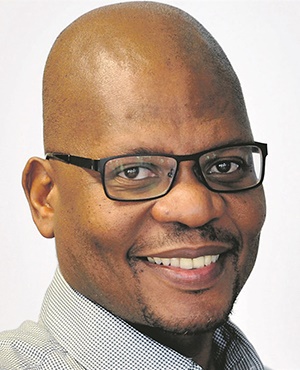
Do you recognise the following?
“Traffic alert: Traffic is diverted by JMPD on Golden Highway due to a protest by residents of Zakariyya Park who allege they haven’t had water for three days. Motorists can use R554, K43 and Provincial Road as alternative routes.”
Or this: “Since early this morning, they’ve been burning tyres in the Vrygrond area. There are a couple of roads closed because of the protest action,” provincial traffic chief Kenny Africa told News24.
Or this: “Police spokesperson Colonel Thembeka Mbhele said a crowd of about 1 500 people barricaded Dududu Road from Amandawe with rocks and burning tyres, preventing vehicles from passing.”
This is the nature of traffic reports in South Africa, where protests are just about as likely to cause traffic disruptions as car pile-ups or weather difficulties. From small hamlets in the Eastern Cape to dorpies in North West, to major metropoles, this is how the traffic reports sound.
This week was the same, much to the growing frustration of the country’s leaders and administrators.
You could hear the exasperation of Transport Minister Blade Nzimande as he appealed to protesters to stop blocking the N3, South Africa’s busiest highway.
“What the drivers did at Van Reenen’s is completely unacceptable. No matter how angry you are, you can’t block the road. If you block the N3 you are shutting down a large part of South Africa’s economy,” he said.
Police Minister Bheki Cele was angry. He described the truck drivers’ actions as “barbaric” and threatened to crack down on them.
“Swift and tough action by the police is once again an indication of our commitment to maintain law and order in our country. No amount of pressure will divert our focus from stamping hard the authority of the state.”
The anger was understandable. This was the third time in months that truck drivers had blocked the road in protest against the industry’s practice of hiring foreigners, something that has elicited little sympathy from those adversely affected by the action.
It also came on the back of blockades of the N3 in Johannesburg by residents of Alexandra township protesting against service-delivery backlogs. This came as protesting residents of George, in the Western Cape, blocked the N2.
It was a only matter of time before protests that had hitherto been focused on blocking the exits and entrances to towns, disrupting traffic on regional roads, would spill on to the highways. Protesters burnt public property, vandalised cars and stopped commuters from going to work.
Now they have upped the ante and are targeting national roads, the backbone of the economy and which guarantee high visibility. According to Municipal IQ, they are becoming more frequent and more violent. And it is as certain as Jacob Zuma taking another bride and planting more seeds that the trend of blockading major highways will spread.
Couple this with the lawlessness of aggressive land invasions that are taking place with greater frequency and you have a country in a state of mayhem.
Watching the protests this week, one thought back to the hopeful days at the beginning of the year, when the country seemed to be entering a new era.
Of course the change in leadership of the governing party and the republic was never going to get rid of the protests that have become part of our daily lives. Instead, hope often has the opposite effect – that of encouraging people to raise their voices to get heard. And in the South African context the voice is often in the form of a brick, a petrol bomb or a burning tyre.
In this coming week, we will see flare-ups elsewhere in the country. Some will be reported as protests while others will just make the local traffic report.
This cannot be normal. But it is. We have become so accustomed to these protests that we don’t blink any more.
In the 1980s, the nation was at war. The sight of police on the streets with shotguns, teargas plumes rising high into the air and people being bundled into large police vans was par for the course. It was expected of any young person in the township to have been involved in multiple clashes with the police.
But this is the third decade of our great democracy, a system of government that should be responsive to the cries of citizens.
In this era, we are encouraging citizens to believe that violence is a credible voice and are rearing children to believe that lighting a match is the way to conduct politics.
The need to reverse this culture is as urgent as dealing with the economic, racial and security challenges of our republic. They are crises that belong in one WhatsApp group.




 Publications
Publications
 Partners
Partners























